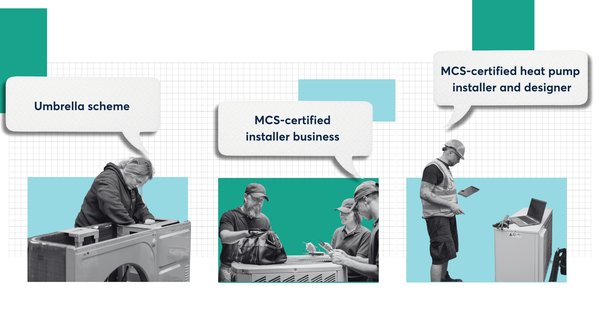Nesta ran a short exploratory project to investigate the challenges that employers, colleges and apprentices face in the heat pump apprenticeship system.
We wanted to understand whether alleviating these challenges could increase the number of apprentices that are taken on by employers, and if doing so could be an important way to grow the heat pump workforce.
We interviewed representatives from heat pump businesses, training colleges, trade associations and certification bodies to understand the challenges they faced. We then used our findings to develop potential innovation projects that Nesta could work on to solve identified challenges and help increase apprentice uptake.
Why could apprenticeships be a good way of growing the sector?
It’s well known that the heat pump industry, and the wider heating and plumbing sector, have an ageing population. Increasing the number of younger engineers in the workforce is essential for maintaining this vital industry’s capacity. However, there’s a strong need to go beyond simply maintaining the size of the heat pump workforce, and to proactively grow it. This is crucial for meeting the UK’s heat pump installation and net-zero targets.
An important route to entering the heating industry is through an apprenticeship. Not only does this increase the number of younger engineers in the workforce, but many in the sector regard apprenticeships as one of the most effective ways to learn the trade. This may partly be because employers are able to teach apprentices what they view as best practice, making them especially valuable and productive, often before they’ve finished training. Training future heat pump engineers on the job through apprenticeships is particularly important in the heat pump sector, where the availability and quality of training can be mixed.
This means that not only would increasing the number of apprenticeships address the industry’s ageing population, but it could also increase the number of highly skilled and productive heat pump engineers. However, the question still remains as to whether it would be possible to increase the number of heat pump apprentices, and to the extent that it could grow – and not simply maintain – the heat pump industry to meet installation targets.
Is there scope to increase apprentice uptake?
There appears to be some scope to increase apprentice uptake from employers. BEIS’s heating and cooling installer study found only 21% of engineers currently had an apprentice, and Nesta’s heat pump installer survey found that 39% of respondents had employed an apprentice in the past 12 months. Both of these figures suggest there are many more who could take on apprentices. Additionally, those who currently employ apprentices may be able to take on more.
However, despite there being the scope to increase apprenticeship uptake, there are challenges to doing so in practice. Firstly, many of the larger companies, who are best placed to take on apprentices, are already doing so. BEIS’s study found 83% of businesses with 10 or more employees currently had an apprentice, whilst Nesta’s survey found that 70% of companies with over 5 employees had employed an apprentice in the past 12 months.
It’s clear that the smallest companies are facing the biggest barriers to taking on apprentices. Nesta’s survey found that only 31% of those with between 1 and 5 employees had employed an apprentice in the past 12 months, compared to 70% of those with over 5 employees.
There isn’t just a challenge with encouraging those who don’t take on apprentices to do so, but also with enabling those who are currently offering apprenticeships to take on more. BEIS’s study found that only 33% of apprentice-hiring employers have more than one apprentice and only 20% of businesses thought they should take on an additional apprentice each year. This suggests that the majority of those that currently offer apprenticeships aren’t interested in taking on more. Although it could be that the micro-businesses that dominate this sector simply don’t have enough staff to mentor extra apprentices, there could be other reasons why 80% of businesses don’t want to hire extra apprentices.
So whilst there may be some scope to increase the number of heat pump apprentices in the sector, there are likely challenges in the way.






